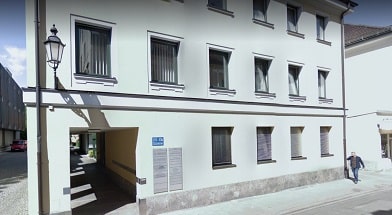
Schönfeldstraße 16,
80539 München
In 1893, the Josefinum Clinic was founded by the Jochner family in the center of Munich. Klinikum Josefinum is a non-state medical center. It cooperates with independent specialists working in various fields of medicine and various clinics in Munich.
About the clinic
The clinic has 68 wards equipped with the latest medical and technical technology. The clinic can accommodate 122 patients at a time. The clinic has an outpatient and inpatient department. The attending physician, together with the head of the department, conducts daily rounds to address any problems that arise and to monitor the effectiveness of the treatment.
A special pride of the clinic is the specialized gastroenterology clinic, which has grown to the size of a separate center. About 5000 patients pass through the center every year. The treatment of each patient in this center is approached individually and comprehensively. After examination and obtaining the results of tests, the doctor makes a diagnosis and prescribes the necessary treatment, which specialists monitor throughout the period of observation. The gastroenterology center provides outpatient care and, if necessary, allocates a place in the main building of the clinic.
The Josephinum Gastroenterology Center is staffed by top-notch physicians.
Christoph Voelker. He received his medical education in Munich and Würzburg. As a general practitioner and gastroenterologist, he worked and studied at the Schwabing Clinic. During his training he gained extensive experience in endoscopic examinations and sonography. He has considerable experience in working with oncology patients and has also worked in the infectious disease department and intensive care unit. His scientific and practical interests lie in the application of diagnostic and interventional gastroenterology and sonography. Dr. Christoph Felker works with cancer patients and patients suffering from chronic inflammatory bowel diseases.
Andrew Alcock. Dr. Alcock received his basic medical education at the University of Munich. During his training he trained in clinics in England, Australia and the USA. Dr. Alcock received his primary specialization as a general practitioner at Rinecker, Traunstein and Mannheim clinics, which are among the top-ranked clinics in Germany. During the period of training and work he managed to gain experience in gastroenterology, performing various diagnostic and therapeutic interventional endoscopic techniques. Since 2000, he opened his private practice, performing endoscopic and sonographic methods of examination and treatment in patients with diseases of the hepato-biliary zone.
Iris Hesse. Iris Hesse is a physician who also gained knowledge not only in Munich, but also abroad in Johannesburg (South Africa). She gained her clinical, scientific and administrative experience at the Traunstein Clinic in Bavaria. Her main areas of expertise are interventional and diagnostic gastroenterology in patients with chronic inflammatory bowel disease and contrast-enhanced sonography. Dr. Hesse is also involved in dietetics and combines her clinical work with the management of a gastroenterology center.
Pete M. Wallisch. Dr. Wallisch has extensive experience, having completed his medical degree at the University of Munich. At the same time, Dr. Wallisch has had numerous internships all over the world: England (Eastbourne), USA (Torrance, California, Los Angeles), Switzerland (Lucerne) and South Africa (Groote Schuur, Cape Town). He has additional specialization as an emergency physician and has worked in air rescue. He worked for a long time at the Traunstein Clinic as a gastroenterologist. For a short period of time he was the head physician of the clinic. He is an active member of many gastroenterology societies: the European Association of Gastroenterology and Hepatology, the German Association of General Practitioners, Gastroenterologists and the German Society for Endoscopy and Medical Imaging. He has also spoken at various congresses on endoscopic examination methods and participated as a referee in sonography and gastroscopy courses. His main area of practical interest is therapeutic and diagnostic endoscopy, ultrasound and sonography. His patient population includes patients with ulcerative colitis, Crohn’s disease, pancreatic and biliary diseases.
Martin Huber. He received his medical education at the University of Munich. He studied gastroenterology at clinics in Munich and Berlin. He worked for a long time as head of the Gastroenterology Endoscopy Center at the Schwabing Clinic. Until 2015 he was head of the gastroenterology clinic Jozenfinum. His main clinical interests lie in the field of endoscopic diagnosis, endoscopic interventional therapy in patients with chronic inflammatory bowel disease.
